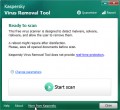What is Lisp ransomware
Lisp ransomware is a new malware created by criminals that restricts access to the victim’s files by encrypting them and demands a ransom for a pair of key-decryptor, necessary for decrypting files. This ransomware renames encrypted files by appending .lisp to their extension. Files encrypted with .lisp extension become useless, their contents cannot be read without the key that the criminals have. Fortunately, there is a free Lisp File Decrypt Tool called ‘STOP (Djvu) Decryptor’ that helps in some cases to decrypt encrypted files. Scroll through this article below to learn more about this decrypt tool and how to use it, as well as alternative ways to recover the contents of encrypted files.
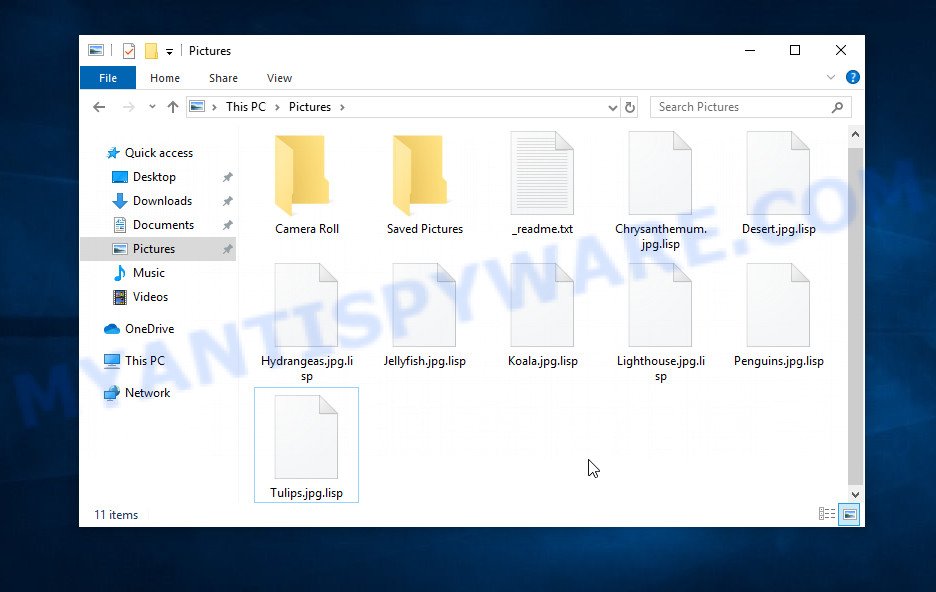
Screenshot of files encrypted by Lisp ransomware virus (‘.lisp’ file extension)
Lisp ransomware is the latest version of STOP (djvu) ransomware, which was discovered by security researchers recently. This is already the 267 variant (v0267) of the STOP ransomware. Like other variants, it encrypts all files on the computer and then demands a ransom for decryption. Lisp encrypts files using a strong encryption method, which eliminates the possibility of finding a key in any way. For each victim, it uses a unique key with a small exception. If the ransomware cannot establish a connection with its command and control server (C&C) before starting the encryption process, then it uses an offline key. This key is the same for different victims, which makes it possible in some cases to decrypt files that were encrypted during the ransomware attack.
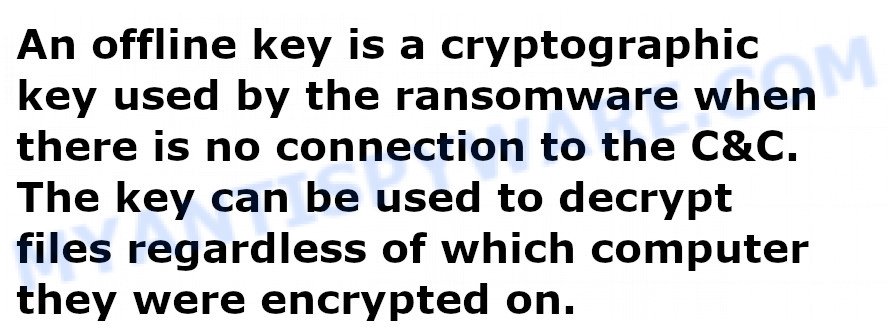
Lisp ransomware has the ability to encrypt files of any type, regardless of what is in them. But it skips files with the extension: .ini, .dll, .lnk, .bat, .sys and files named ‘_readme.txt’. Thus, the following common file types can be easily encrypted:
.wbc, .re4, .t13, .odb, .pak, .wp, .odc, .epk, .mlx, .crw, .psd, .m4a, .xml, .rar, .map, .ff, .xpm, .xar, .wmv, .bar, .zip, .itm, .wpw, .dcr, .x3f, .png, .css, .fsh, .wp5, .ntl, .rtf, .crt, .mdbackup, .odt, .zi, .pptm, .wpb, .kdb, .pdd, .dazip, .js, .wma, .wotreplay, .r3d, .dba, .forge, .rofl, .flv, .webdoc, .qic, .z3d, .svg, .wma, .2bp, .qdf, .menu, .bkp, .mef, .gho, .pdf, .slm, .ws, .dbf, .wpg, .db0, .wbmp, .vtf, .bkf, .orf, .dxg, .ods, .docx, .sis, .cas, .xlsb, .xdl, .gdb, .rgss3a, .wcf, .hvpl, .wav, .xlgc, .wmd, .iwi, .7z, .raf, .3ds, .blob, .xbdoc, .srw, .raw, .vfs0, .wot, .jpg, .3dm, .pkpass, .wbd, .tor, .t12, .sav, .bik, .zw, .y, .xlsx, .rw2, .big, .wsc, .wmv, .ztmp, .das, .m3u, .dmp, .nrw, .wsh, .webp, .xy3, .mp4, .p7c, .xlk, .0, .sql, .wpt, .xlsm, .xld, .zif, .indd, .z, .pem, .m2, .xlsm, .jpe, .arw, .bc6, .vdf, .ppt, wallet, .pef, .wire, .mdf, .wmo, .ptx, .xbplate, .fpk, .cfr, .doc, .wp4, .p7b, .desc, .fos, .dwg, .zdb, .mddata, .wp7, .kf, .lvl, .pptx, .sr2, .wsd, .xxx, .sb, .kdc, .3fr, .vpp_pc, .wbz, .avi, .wgz, .upk, .xx, .cr2, .wpd, .ncf, .esm, .syncdb, .itdb, .ai, .ysp, .bay, .zip, .wpa, .wri, .sidn, .sie, .rim, .csv, .xdb, .mcmeta, .xmmap, .lbf, .wbk, .ibank, .xyp, .xwp, .xf, .mrwref, .zabw, .hkdb, .wpd, .srf, .odp, .x3d, .asset, .jpeg, .tax, .xls, .der, .vcf, .apk, .itl, .d3dbsp, .sid, .xll, .x3f, .pst
Each file that has been encrypted will be renamed. This means the following. If a file was called ‘document.docx’, then after encryption, it will be named ‘document.docx.lisp’. Lisp ransomware can encrypt files located on all drives connected to the computer. Therefore, files located in network attached storage and external devices can also be encrypted. It encrypts file by file, when all the files in the directory are encrypted, it drops a new file in the directory, which is called ‘_readme.txt’. Below is the contents of this file.
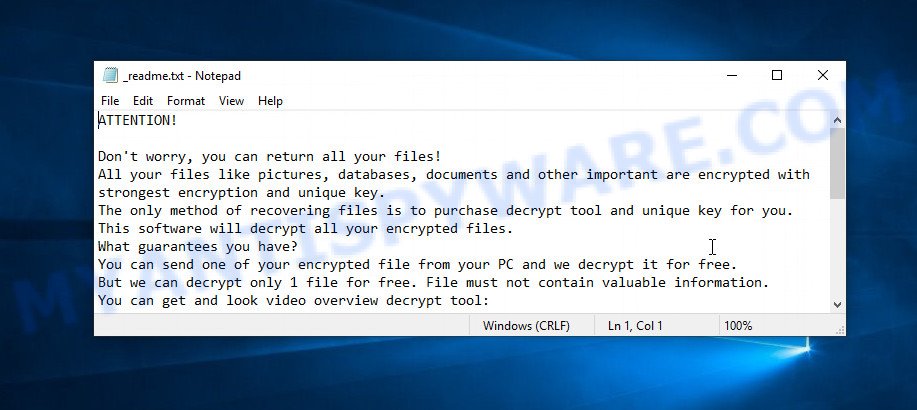
Screenshot of the contents of ‘_readme.txt’ file (Lisp ransom note)
All directories with encrypted files have this file. But the contents of this file are the same everywhere. This file contains a message from Lisp creators. In this message, the criminals report that all the files were encrypted and the only way to decrypt them is to buy a decryptor and key. Attackers demand a ransom of $490, if the victim does not pay the ransom within 72 hours, then the ransom will double to $980. Lisp authors left two email addresses that the victim must use to contact them. To confirm the possibility of decryption, criminals offer to decrypt one file that does not contain important information for free. But it’s obvious that there is no guarantee that even by paying the ransom, the victim will be able to decrypt all files that have been encrypted.
Text presented in the Lisp ransom note:
ATTENTION!
Don’t worry, you can return all your files!
All your files like pictures, databases, documents and other important are encrypted with strongest encryption and unique key.
The only method of recovering files is to purchase decrypt tool and unique key for you.
This software will decrypt all your encrypted files.
What guarantees you have?
You can send one of your encrypted file from your PC and we decrypt it for free.
But we can decrypt only 1 file for free. File must not contain valuable information.
You can get and look video overview decrypt tool:
https://we.tl/t-jydQMZP2Ie
Price of private key and decrypt software is $980.
Discount 50% available if you contact us first 72 hours, that’s price for you is $490.
Please note that you’ll never restore your data without payment.
Check your e-mail “Spam” or “Junk” folder if you don’t get answer more than 6 hours.To get this software you need write on our e-mail:
helpmanager@mail.chReserve e-mail address to contact us:
restoremanager@airmail.ccYour personal ID:
Threat Summary
| Name | Lisp ransomware, Lisp File Virus |
| Type | Filecoder, Crypto virus, Crypto malware, Ransomware, File locker |
| Encrypted files extension | .lisp |
| Ransom note | _readme.txt |
| Contact | helpmanager@mail.ch, restoremanager@airmail.cc |
| Ransom amount | $490,$980 in Bitcoins |
| Detection Names | Trojan:Win32/Kryptik.23bbc993, FileRepMalware, W32.AIDetectVM.malware1, Trojan.GenericKDZ.71528, A Variant Of Win32/Kryptik.HHQR, HEUR:Exploit.Win32.Shellcode.gen, BehavesLike.Win32.Gupboot.cc, Trojan:Win32/EmotetCrypt!ml, ML.Attribute.HighConfidence |
| Symptoms | Files won’t open. Odd, new or missing file extensions. Files named like ‘_readme.txt’, ‘#_README_#’, ‘_DECRYPT_’ or ‘recover’ in each folder with at least one encrypted file.. New files on your desktop, with name variants of: ‘HOW_TO_DECRYPT.txt’, ‘DECRYPT.txt’ or ‘README.txt’. |
| Distribution methods | Malicious links in emails. Drive-by downloads (crypto malware has the ability to infect the personal computer simply by visiting a web-page that is running malicious code). Social media posts (they can be used to entice users to download malicious software with a built-in ransomware downloader or click a misleading link). Flash Drives containing malware. |
| Removal | Lisp ransomware removal guide |
| Decryption | Lisp File Decrypt Tool |
Lisp authors claim that it is impossible to decrypt files that have been encrypted. Unfortunately, this is true. Security researchers confirm that a key and a decryptor are required to decrypt files. As we said above, in some cases, the Lisp ransomware encrypts files with an offline key that can be determined by security researchers. Files encrypted with this key can be decrypted using a free Lisp File Decrypt Tool. In all remaining cases, decryption is not yet possible. But there are several alternative ways that can allow everyone to recover the contents of encrypted files.
How to remove Lisp ransomware virus, Decrypt/Recover .lisp files
If your files were encrypted with the Lisp ransomware virus, we recommend using the following steps, which will help you to remove the ransomware and decrypt (restore) the encrypted files. Read this entire manual, then open it on your smartphone or print it. So it will be more convenient for you to carry out all the necessary actions.
- How to remove Lisp ransomware virus
- How to decrypt .lisp files
- How to restore .lisp files
- How to protect your computer from Lisp ransomware
How to remove Lisp ransomware virus
Before you start decrypting or recovering .lisp files, you need to remove Lisp ransomware and its autostart entries. This must be done since otherwise the ransomware may re-encrypt the restored files. You can stop the ransomware from working, as it is not difficult to do. Another option is to perform a full system scan using free malware removal tools capable of detecting and removing ransomware infection.
It is very important to scan the computer for malware, as security researchers found that spyware could be installed on the infected computer along with the Lisp ransomware. Spyware is a very dangerous security threat as it is designed to steal the user’s personal information such as passwords, logins, contact details, etc. If you have any difficulty removing the Lisp virus, then let us know in the comments, we will try to help you.
To remove Lisp ransomware, follow the steps below:
- Kill Lisp ransomware
- Disable Lisp ransomware start-up
- Delete Lisp ransomware task
- Delete Lisp virus file
- Scan computer for malware
Kill Lisp ransomware
Press CTRL, ALT, DEL keys together.
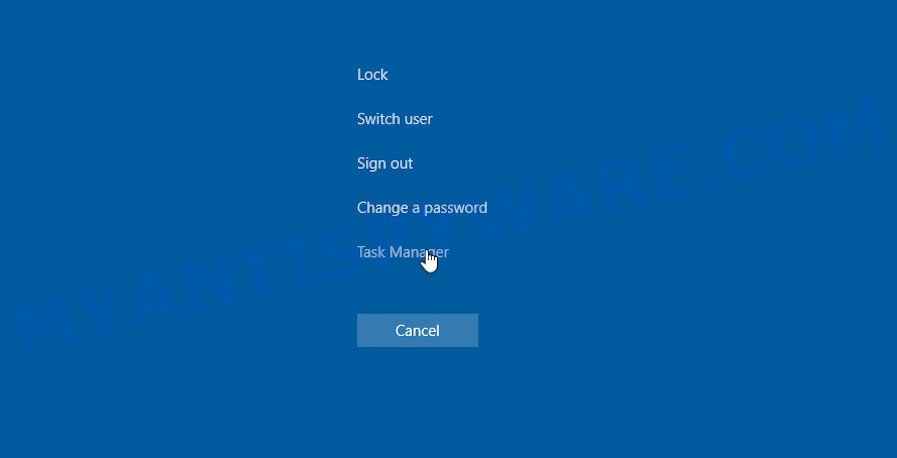
Click Task Manager. Select the “Processes” tab, look for something suspicious that is the Lisp ransomware then right-click it and select “End Task” or “End Process” option. If your Task Manager does not open or the Windows reports “Task manager has been disabled by your administrator”, then follow the guide: How to Fix Task manager has been disabled by your administrator.
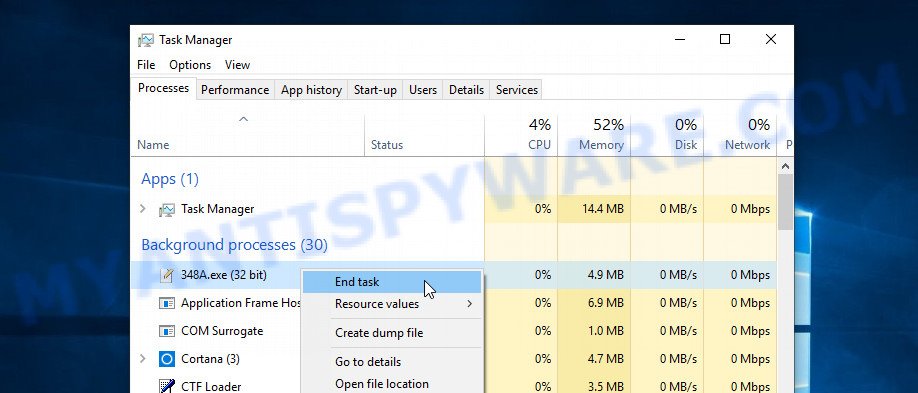
It is not difficult to detect a process related to the Lisp ransomware. When looking for a malicious process, pay attention to the process icon and its name. Most often, this ransomware has a process name in the following format: 4-characters.tmp.exe or 4-characters.exe. For example: 7533.tmp.exe, A4b1.exe, CD15.tmp.exe, 19b2.exe. The process name can also contain “(32 bit)”. If you do not find a process with a similar name in the list of processes, then most likely the Lisp ransomware has finished working. But keep in mind, if you do not remove the ransomware autostart entries, as demonstrated below, and do not delete its file, then after a while it may start again, and if it finds unencrypted files, immediately encrypt them.
Disable Lisp ransomware start-up
Select the “Start-Up” tab, look for something similar to the one shown in the example below, right click to it and select Disable.
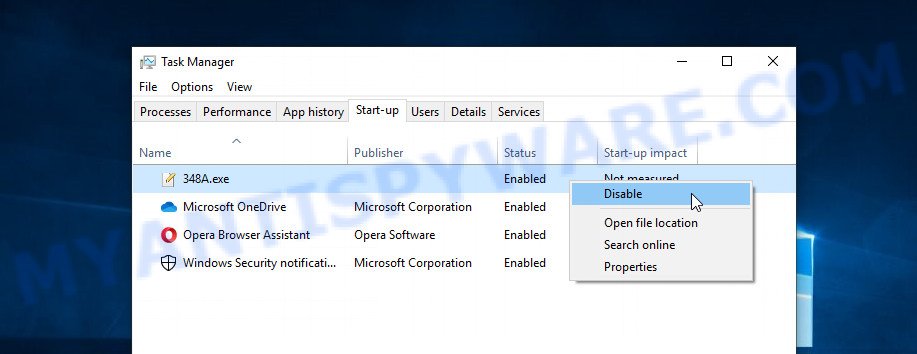
Close Task Manager.
Delete Lisp ransomware task
Type “Task Scheduler” in the search bar. Click Task Scheduler app in the search results. Click “Task Scheduler Library” in the left panel. On the right panel, right-click to “Time Trigger Task” and select Delete.
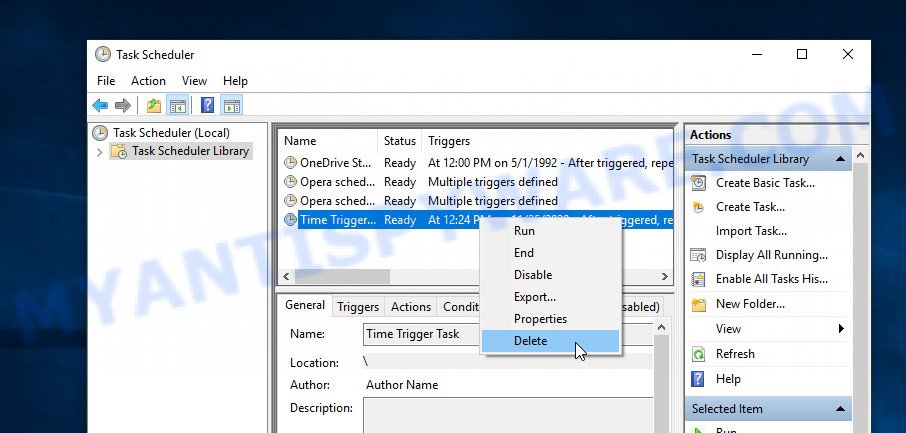
Close Task Scheduler.
Delete Lisp virus file
Run Task Manager and select the “Start-Up” tab. Right click to the Lisp ransomware Start-Up entry and select Open File Location as shown below.
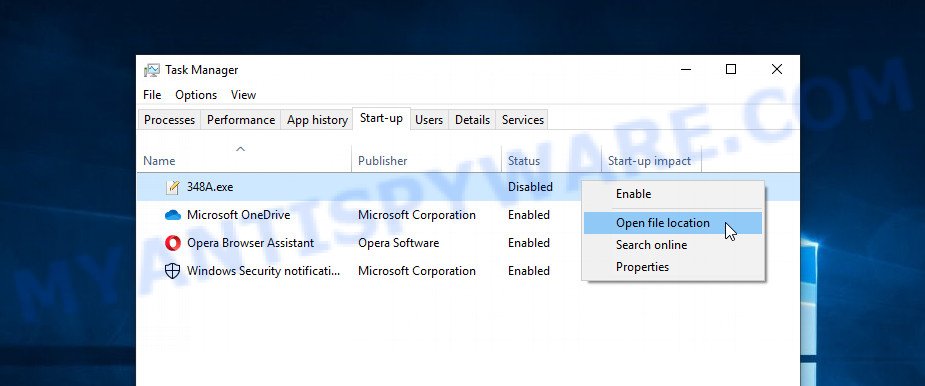
A directory containing one file will open in front of you, this file is the Lisp ransomware. It needs to be removed. If you try to delete it immediately, then you will not succeed, since this file is protected from deletion.
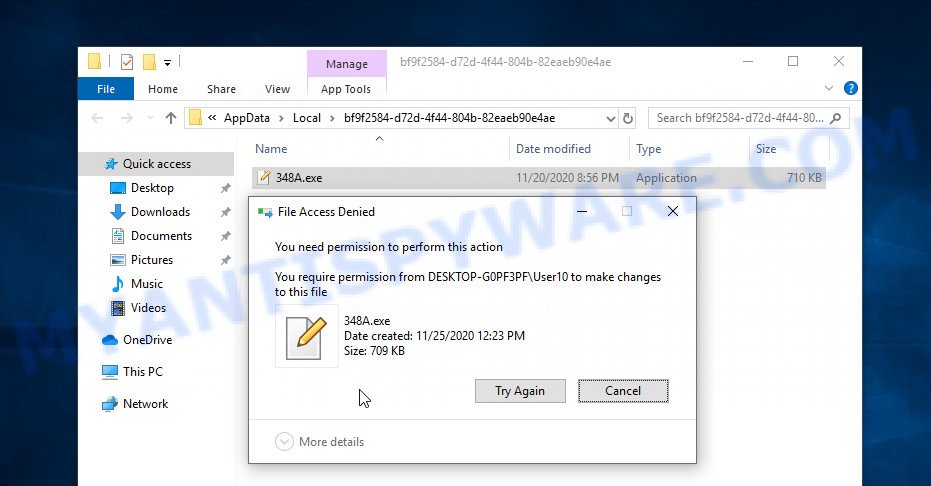
To delete this file, you need to do the following. Right-click on the file, select Properties. In the window that opens, select Security tab. Next, click the Advanced button below. A window will open as shown in the following example.
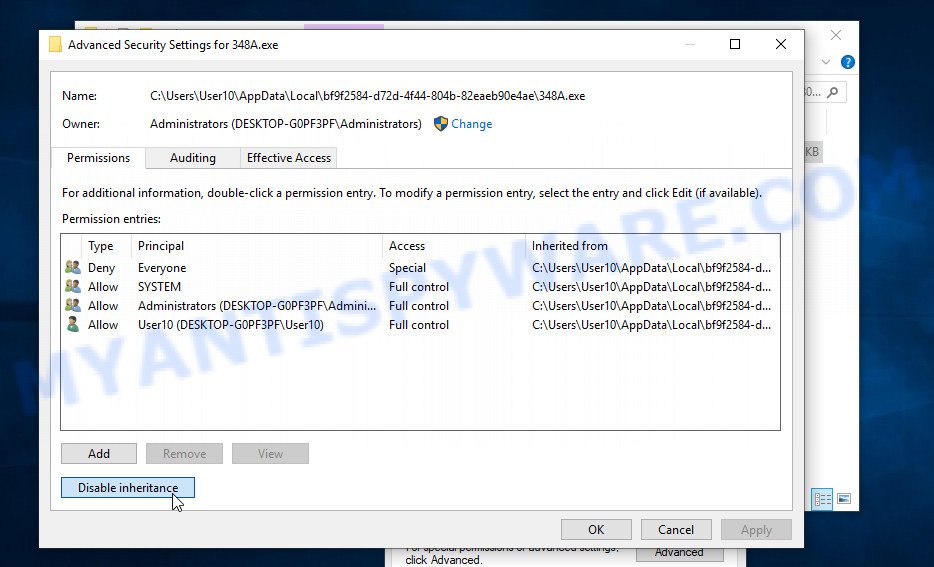
Click Disable inheritance. In the Block inheritance dialog box that opens, select the first item (Convert inherited permissions…) as shown below.
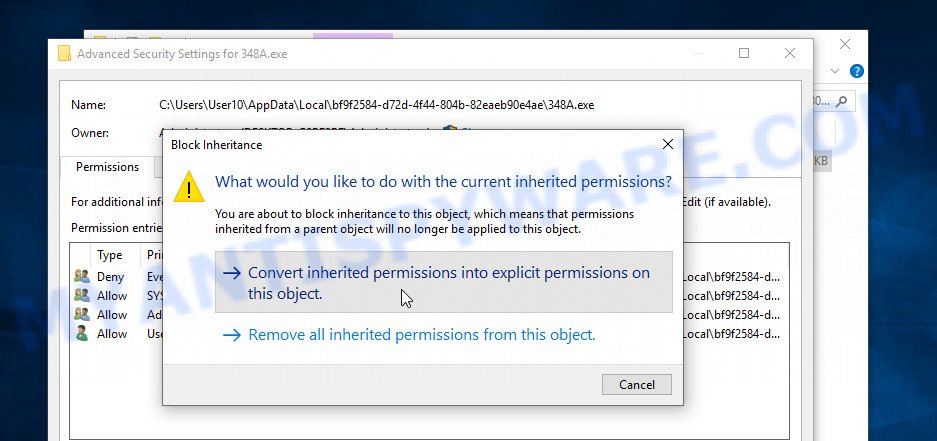
In the Permission entries list, select “Deny Everyone”, click Remove button and then OK. Close the file properties window. You should now be able to remove the Lisp ransomware File. Right-click on the file and select Delete.
Scan computer for malware
Zemana Anti-Malware (ZAM) is a complete package of antimalware utilities that can help you remove Lisp ransomware. Despite so many features, it does not reduce the performance of your PC system. Zemana can be used to uninstall almost all the forms of security threats including ransomware, trojans, worms, adware, browser hijackers, potentially unwanted software and other malicious software. Zemana has real-time protection that can defeat most malicious software and ransomware virus. You can use Zemana Anti-Malware with any other anti-virus without any conflicts.
Please go to the link below to download the latest version of Zemana Anti Malware for MS Windows. Save it directly to your Desktop.
165043 downloads
Author: Zemana Ltd
Category: Security tools
Update: July 16, 2019
When the download is complete, launch it and follow the prompts. Once installed, Zemana Anti-Malware will try to update itself and when this process is done, click the “Scan” button to find Lisp crypto malware and other security threats.
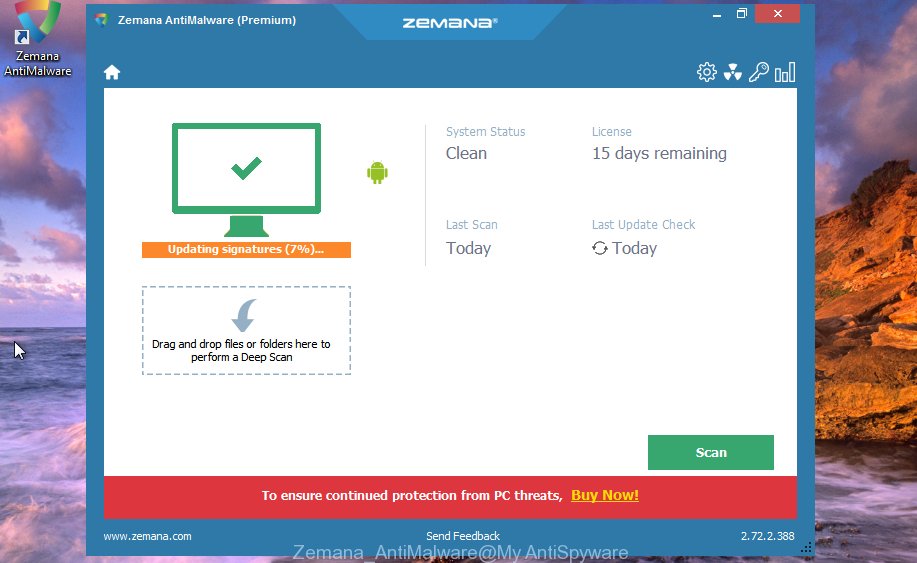
A system scan can take anywhere from 5 to 30 minutes, depending on your computer. Review the results once the utility has complete the system scan. If you think an entry should not be quarantined, then uncheck it. Otherwise, simply click “Next” button.
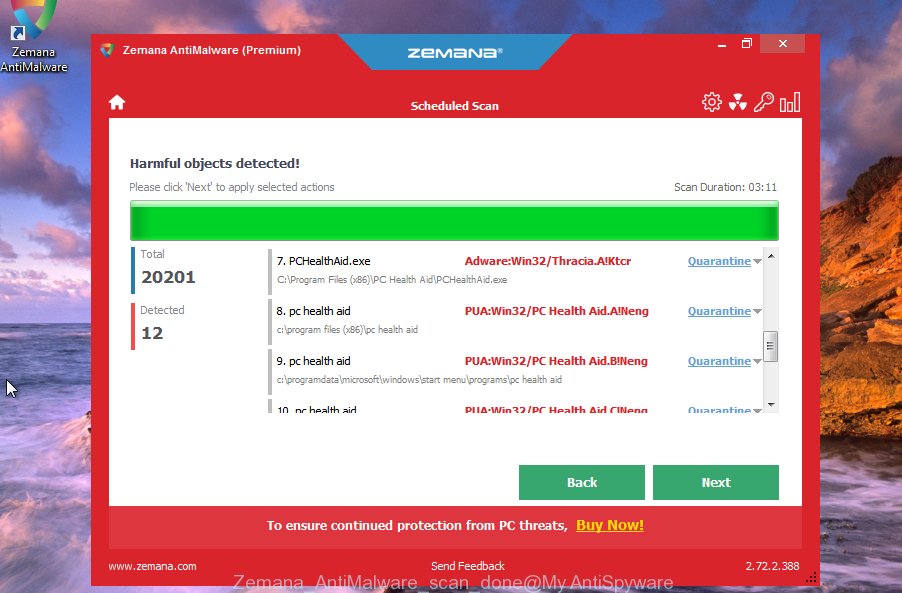
The Zemana Free will remove Lisp ransomware virus related folders,files and registry keys and move the selected threats to the program’s quarantine.
In order to be 100% sure that the computer no longer has the Lisp malware, we recommend using the Kaspersky virus removal tool (KVRT). It is free and easy to use. It can detect and uninstall ransomware, spyware, PUPs, worms, trojans, adware and other malicious software. KVRT is powerful enough to find and uninstall malicious registry entries and files that are hidden on the personal computer.
Download Kaspersky virus removal tool on your Windows Desktop from the following link.
129295 downloads
Author: Kaspersky® lab
Category: Security tools
Update: March 5, 2018
Once the downloading process is complete, double-click on the KVRT icon. Once initialization procedure is complete, you will see the Kaspersky virus removal tool screen as shown in the figure below.
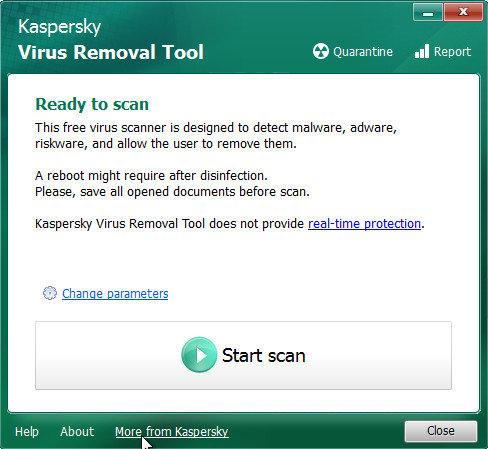
Click Change Parameters and set a check near all your drives. Press OK to close the Parameters window. Next press Start scan button to perform a system scan with this utility for the Lisp crypto virus and other known infections. A system scan can take anywhere from 5 to 30 minutes, depending on your PC. While the utility is scanning, you can see number of objects and files has already scanned.
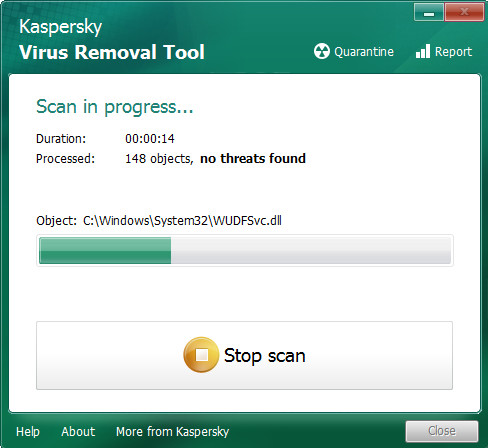
When KVRT has completed scanning, it will show a screen that contains a list of malicious software that has been found like below.
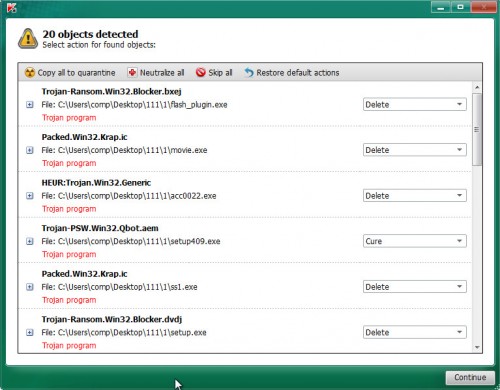
Make sure to check mark the items which are unsafe and then press on Continue to start a cleaning procedure.
How to decrypt .lisp files
All files with the ‘.lisp’ extension are encrypted. Their contents cannot be unlocked simply by removing this extension or completely changing the filename. To decrypt .lisp files, you need a Lisp File Decrypt Tool. Fortunately, Emsisoft has created a free decryptor called STOP Djvu decryptor.
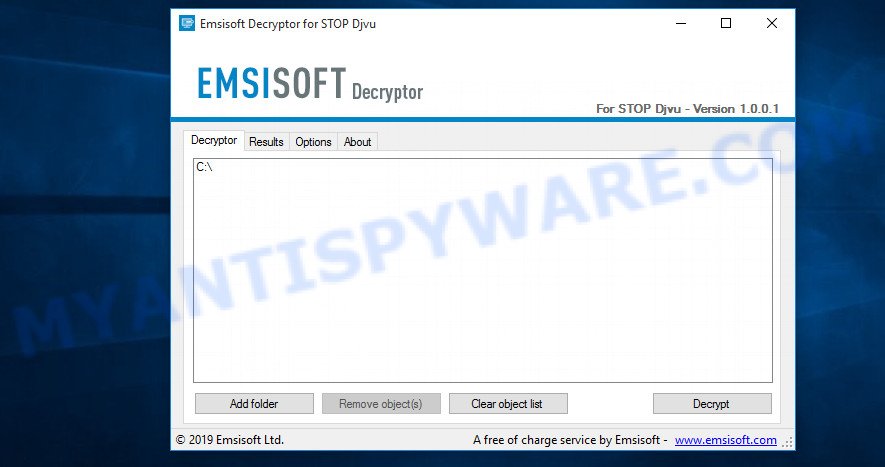
Lisp File Decrypt Tool (STOP Djvu decryptor)
To decrypt .lisp files, use free Lisp File Decrypt Tool
- Download Lisp File Decrypt Tool from the following link.
STOP Djvu decryptor - Scroll down to ‘New Djvu ransomware’ section.
- Click the download link and save the ‘decrypt_STOPDjvu.exe’ file to your desktop.
- Run decrypt_STOPDjvu.exe, read the license terms and instructions.
- On the ‘Decryptor’ tab, using the ‘Add a folder’ button, add the directory or disk where the encrypted files are located.
- Click the ‘Decrypt’ button.
Lisp File Decrypt Tool is a free tool that allows everyone to decrypt .lisp files for free. At the moment, the decryptor can only decrypt files that have been encrypted with an offline key. Unfortunately, if the files were encrypted with an online key, then the free decryptor is completely useless. The online key is unique to each infected computer, and at the moment there is no way to find this key. Of course, criminals have this key, but we do not think that paying a ransom is a way to decrypt .lisp files. In the case when the files are encrypted with an online key, there is a chance to restore the encrypted files using alternative methods, which are described below.
How to find out which key was used to encrypt files
Since Lisp File Decrypt Tool only decrypts files encrypted with the offline key, each Lisp’s victim needs to find out which key was used to encrypt the files. Determining the type of key used is not difficult. Below we give two ways. Use any of them. We recommend using the second method, as it is more accurate.
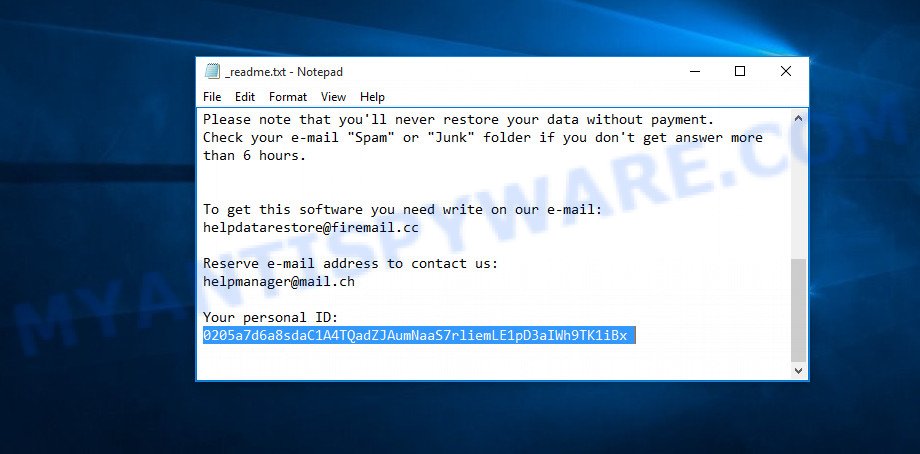
Personal ID is highlighted here
Find out the type of key using ‘_readme.txt’ file
- Open the ransom demand message (‘_readme.txt’ file).
- Scroll down to the end of the file.
- There you will see a line with the text ‘Your personal ID’.
- Below is a line of characters that starts with ‘0267’ – this is your personal id.
Find out the type of key using ‘PersonalID.txt’ file
- Open disk C.
- Open directory ‘SystemID’.
- Open file named ‘PersonalID.txt’. This file lists ‘Personal ID’s that match the keys that the Lisp ransomware used to encrypt files.
The ‘Personal ID’ is not a key, it is an identifier related to a key that was used to encrypt files. If the ID ends with ‘t1’, then the files are encrypted with an offline key. If the ID does not end with ‘t1’, the Lisp ransomware used an online key. If you could not figure out how to determine which key was used to encrypt files, then we can help. Just write a request here or in the comments below.
Lisp File Decrypt Tool : “No key for New Variant online ID”
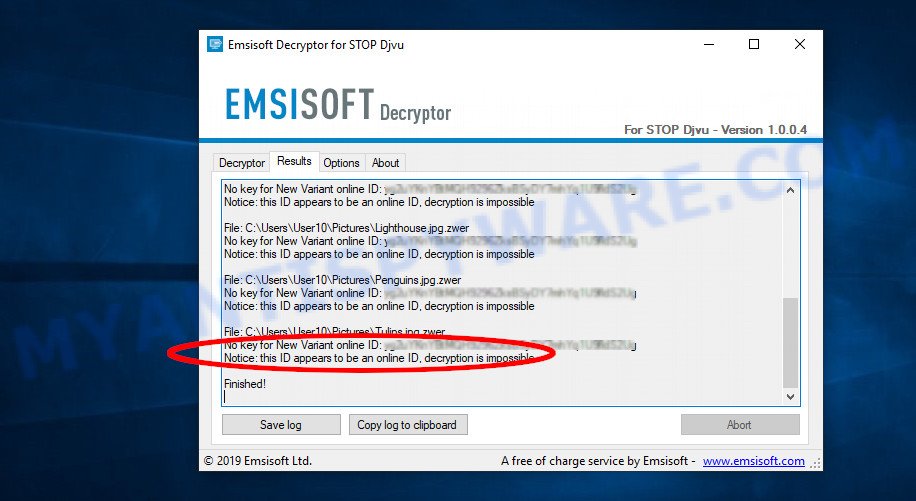
If, when you try to decrypt .lisp files, Lisp File Decrypt Tool reports:
No key for New Variant online ID: *
Notice: this ID appears to be an online ID, decryption is impossible
It means that your files are encrypted with an ‘online key’ and their decryption is impossible, since only the lisp authors have the key necessary for decryption. In this case, you need to use alternative methods listed below to restore the contents of encrypted files.
Lisp File Decrypt Tool : “No key for New Variant offline ID”
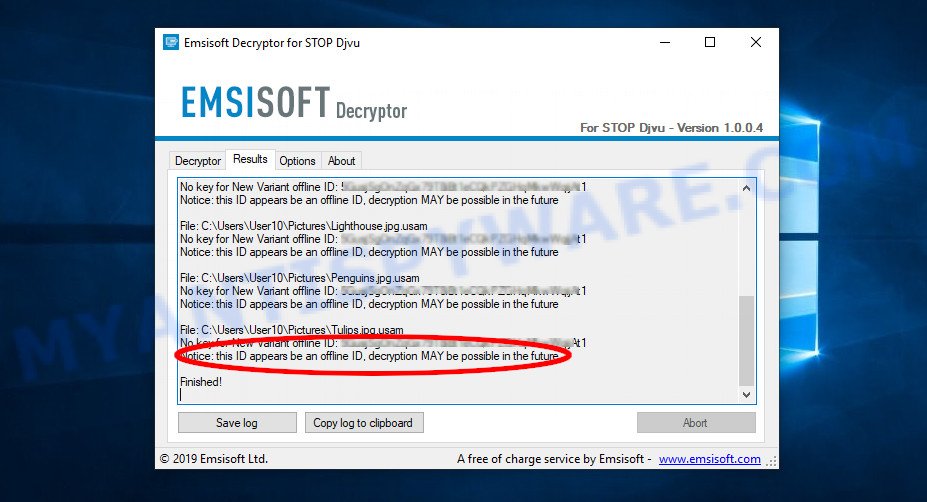
If, during decryption of .lisp files, Lisp File Decrypt Tool reports:
No key for New Variant offline ID: *t1
Notice: this ID appears be an offline ID, decryption MAY be possible in the future.
It means the following: your files are encrypted with an ‘offline key’, but the key itself has not yet been obtained by security researchers, in this case, you need to be patient and wait a while, in addition, you can also use alternative ways for recovering encrypted data.
If for some reason you were unable to decrypt the encrypted files, then We recommend to follow the news on our Facebook or YouTube channels. So you ‘ll know right away that it ‘s possible to decrypt .lisp files.
This video step-by-step guide will demonstrate How to remove Lisp ransomware, Decrypt/Recover .lisp files.
How to restore .lisp files
As we already said, Lisp File Decypt Tool can only decrypt files encrypted using the so called ‘offline key’. What to do when files were encrypted with an online key? Even in this case, everyone has a chance to recover the contents of encrypted files. This is possible due to the existence of several alternative ways to restore files. Each of these methods does not require a decryptor and a unique key, which is in the hands of criminals. The only thing we strongly recommend that you perform (if you have not already done so) is to perform a full scan of the computer. You must be 100% sure that Lisp virus has been removed. To find and remove ransomware, use the free malware removal tools.
Restore .lisp files using Shadow Explorer
The Windows OS (10, 8, 7 , Vista) has one very useful feature, it makes copies of all files that have been modified or deleted. This is done so that the user can recover, if necessary, the previous version of accidentally deleted or damaged files. These copies of the files are called ‘Shadow copies’. One tool that can help you recover files from the Shadow copies is ShadowExplorer. It is very small tool and easy to use. Unfortunately, ransomware often delete Shadow copies, thus blocking this method of recovering encrypted files. Nevertheless, be sure to try this method.
ShadowExplorer can be downloaded from the following link. Save it to your Desktop.
439670 downloads
Author: ShadowExplorer.com
Category: Security tools
Update: September 15, 2019
When the downloading process is finished, open a directory in which you saved it. Right click to ShadowExplorer-0.9-portable and select Extract all. Follow the prompts. Next please open the ShadowExplorerPortable folder as shown in the figure below.
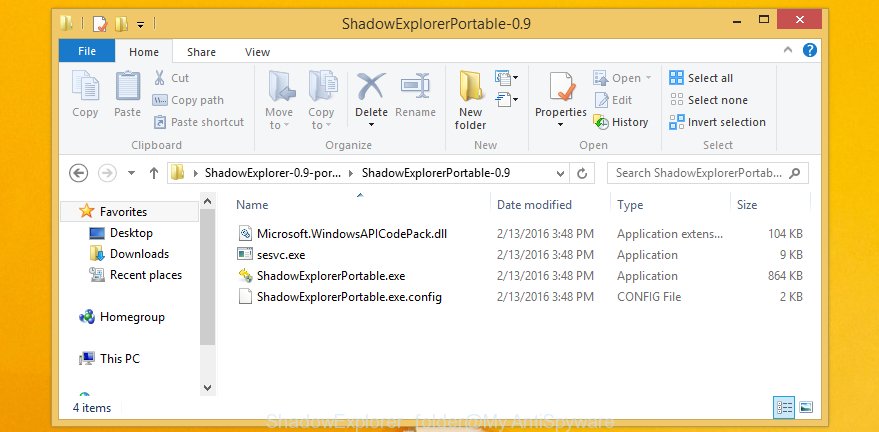
Double click ShadowExplorerPortable to launch it. You will see the a window as displayed on the image below.
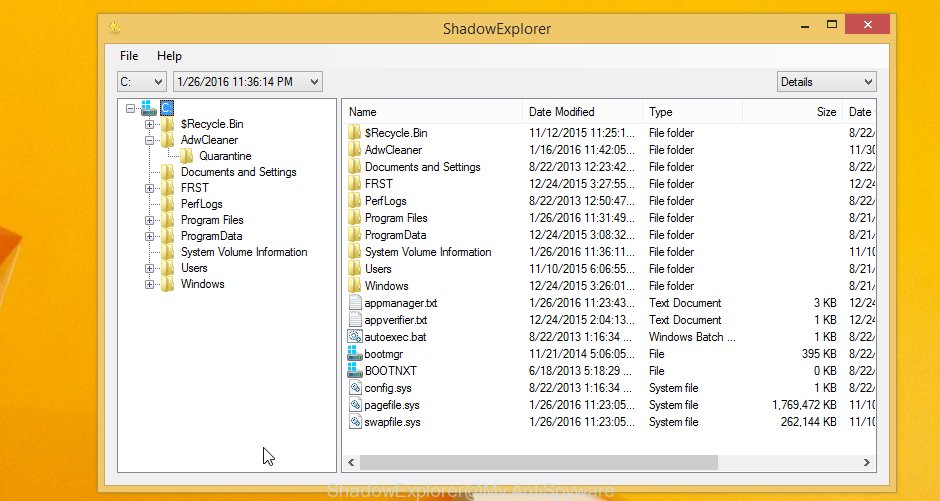
In top left corner, select a Drive where encrypted documents, photos and music are stored and a latest restore point as shown on the screen below (1 – drive, 2 – restore point).
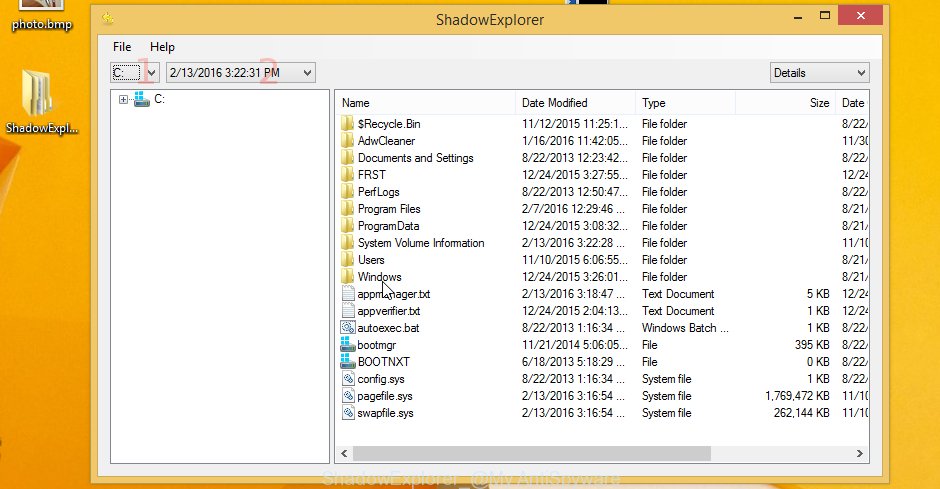
On right panel look for a file that you wish to recover, right click to it and select Export as shown in the following example.

This video step-by-step guide will demonstrate How to recover encrypted files using Shadow Explorer.
Use PhotoRec to restore .lisp files
Another alternative way to recover encrypted files is to use data recovery tools. We recommend using a program called PhotoRec. This tool is free and does not require installation. Below we will show in detail how to use it to restore encrypted files.
Download PhotoRec on your Windows Desktop from the link below.
After the downloading process is complete, open a directory in which you saved it. Right click to testdisk-7.0.win and choose Extract all. Follow the prompts. Next please open the testdisk-7.0 folder as shown below.

Double click on qphotorec_win to run PhotoRec for Microsoft Windows. It will display a screen as displayed in the figure below.
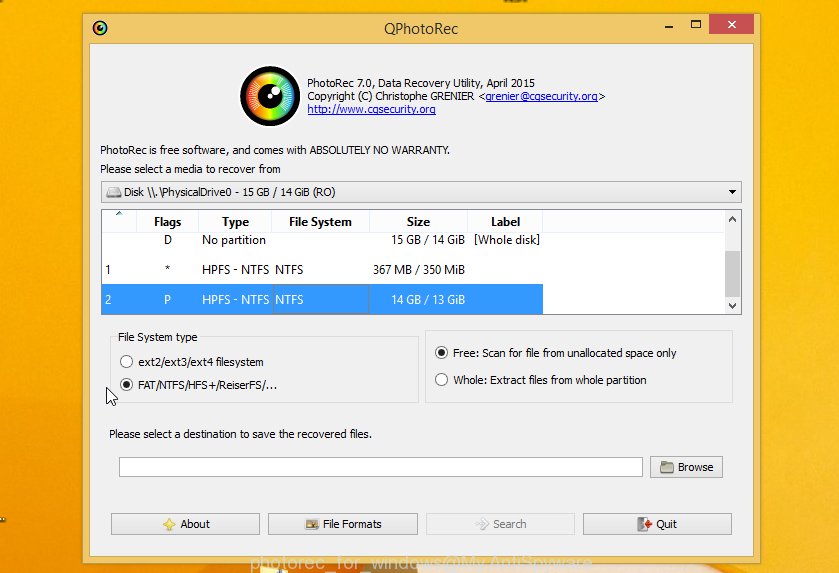
Select a drive to recover like the one below.

You will see a list of available partitions. Select a partition that holds encrypted documents, photos and music as shown below.

Click File Formats button and choose file types to recover. You can to enable or disable the recovery of certain file types. When this is complete, click OK button.
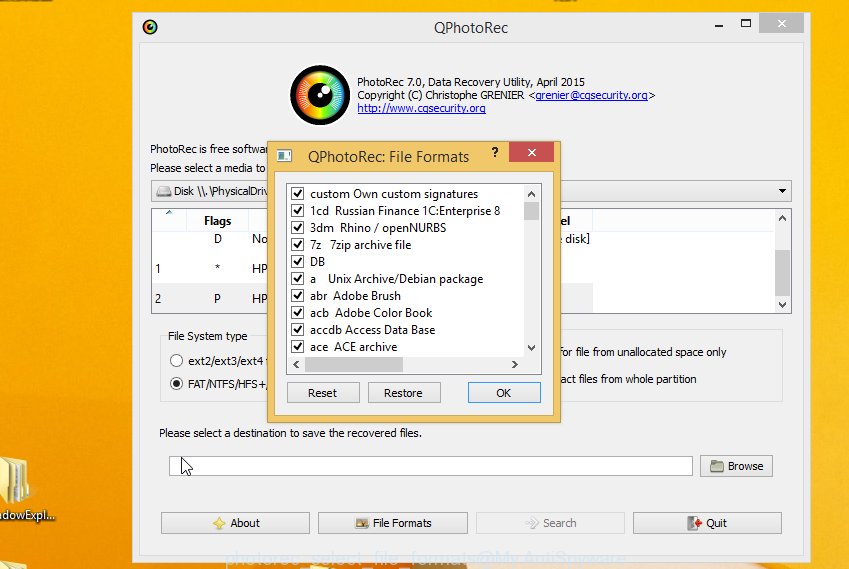
Next, press Browse button to choose where restored photos, documents and music should be written, then press Search. We strongly recommend that you save the recovered files to an external drive.
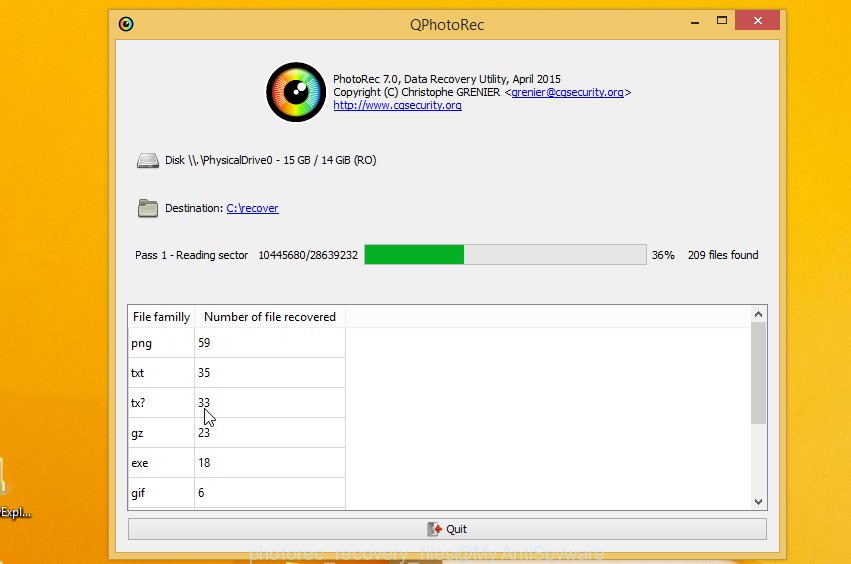
Count of recovered files is updated in real time. All restored personal files are written in a folder that you have chosen on the previous step. You can to access the files even if the restore process is not finished.
When the recovery is complete, click on Quit button. Next, open the directory where restored personal files are stored. You will see a contents as shown in the following example.
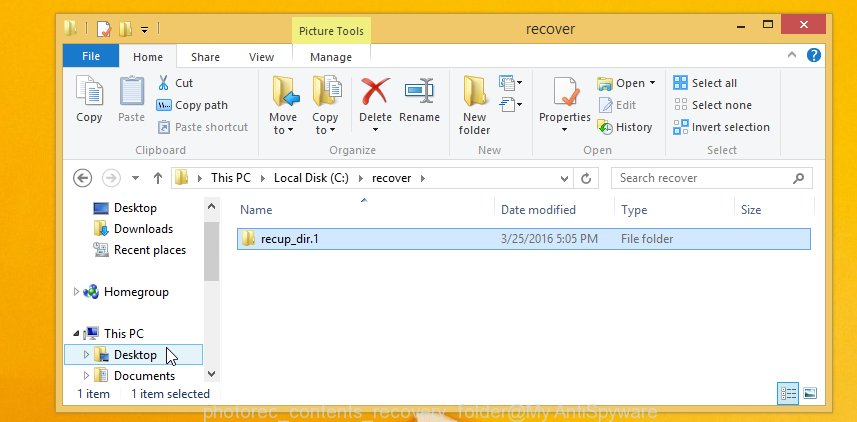
All restored files are written in recup_dir.1, recup_dir.2 … sub-directories. If you’re searching for a specific file, then you can to sort your restored files by extension and/or date/time.
This video step-by-step guide will demonstrate How to recover encrypted files using PhotoRec.
How to protect your computer from Lisp ransomware
Most antivirus programs already have built-in protection system against the ransomware. Therefore, if your personal computer does not have an antivirus application, make sure you install it. As an extra protection, use the HitmanPro.Alert. All-in-all, HitmanPro.Alert is a fantastic tool to protect your machine from any ransomware. If ransomware is detected, then HitmanPro.Alert automatically neutralizes malware and restores the encrypted files. HitmanPro.Alert is compatible with all versions of MS Windows OS from MS Windows XP to Windows 10.
Download HitmanPro.Alert on your Desktop by clicking on the following link.
Once the download is finished, open the file location. You will see an icon like below.

Double click the HitmanPro Alert desktop icon. After the tool is started, you’ll be shown a window where you can select a level of protection, as displayed on the image below.
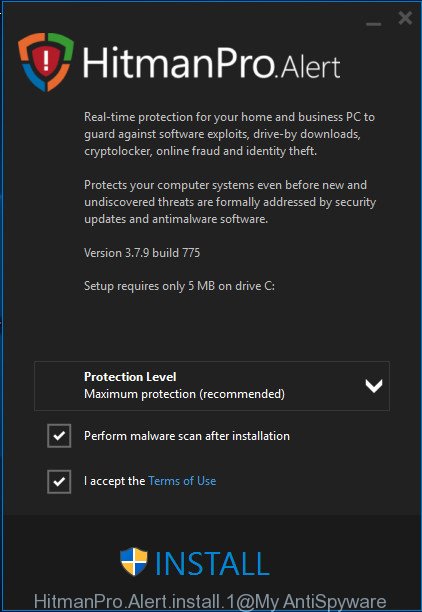
Now press the Install button to activate the protection.
Finish words
This guide was created to help all victims of the Lisp ransomware virus. We tried to give answers to the following questions: how to remove Lisp ransomware; how to decrypt .lisp files; how to recover files, if the Lisp File Decypt Tool does not help; what is an online key and what is an offline key. We hope that the information presented in this manual has helped you.
If you have questions, then write to us, leaving a comment below. If you need more help with Lisp virus related issues, go to here.

